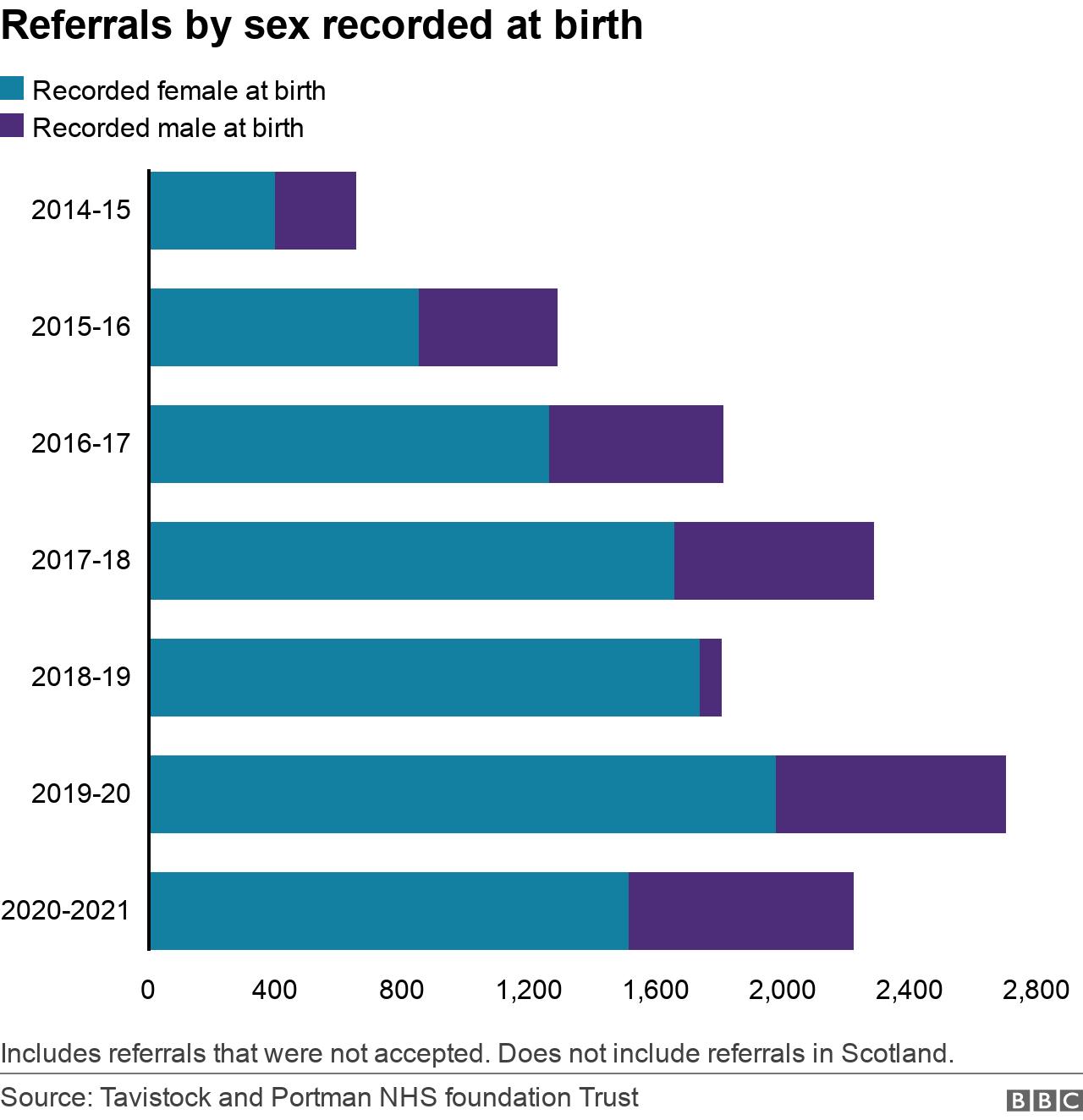I Literally Lost Organs:
https://nypost.com/2022/06/18/detransit ... g-genders/
Teens Regret Changing Genders
-
Thisismyaccount
- Posts: 2333
- Joined: Wed Sep 22, 2021 9:02 pm
- Topic points (SCP): 3702
- Reply points (CCP): 5606
- kestrel9
- Posts: 1273
- Joined: Wed Dec 23, 2020 2:00 am
- Topic points (SCP): 1943
- Reply points (CCP): 2881
Re: Teens Regret Changing Genders
Children's gender identity clinic concerns go back 15 years
2020 https://www.bbc.com/news/uk-54374165
The Gender Identity Service is based at the Tavistock and Portman NHS Trust
https://www.theguardian.com/society/202 ... ldren-gids
Good interview at 12:40
Also https://www.bbc.com/news/health-60698414
See video for one person's perspective- Keira Bell: 'I should have been challenged on my transition'

Youtube video commenting on 'The new conversion therapy: Trans away the gay' https://www.youtube.com/watch?v=hjzQZ2EjuJM
Flashback on Tavistock, the PG edition: http://web.archive.org/web/202006210802 ... 76864.html
2020 https://www.bbc.com/news/uk-54374165
The Gender Identity Service is based at the Tavistock and Portman NHS Trust
Tavistock trust whistleblower David Bell: ‘I believed I was doing the right thing’Doctors at a child gender clinic raised concerns about the use of puberty blockers 15 years ago - an issue that was also discussed by staff last year.
An internal review conducted in 2005, obtained by BBC Newsnight, says some clinicians felt pressured to refer patients for the treatment too quickly.
Staff at the Gender Identity Development Service (GIDS) raised serious safeguarding issues last year.
The Trust which runs the clinic said the report was "no longer relevant".
GIDS, which is run by the Tavistock and Portman NHS Foundation Trust, is a specialised unit for young people who have difficulties with their gender identity.
https://www.theguardian.com/society/202 ... ldren-gids
http://web.archive.org/web/201705291157 ... cy/1286066The story begins in February 2018, with a knock on Bell’s office door. “I was often the person people came to when they had problems,” he says. Having worked as a consultant at the Tavistock for more than 25 years, he was one of its most senior doctors: for 10 years, he was in charge of its scientific programme; in 2018, he was also an elected staff governor of the trust, for the second time. Of the 10 GIDS staff who would talk to him over the course of the next seven months, only the first saw Bell at the Tavistock; the others, who spoke of intimidation, worried about being seen. What did he make of what they told him? “My blood ran cold. Their concerns were similar, but not in a choreographed way. One or two were severely troubled.”
Among these concerns were the fact that children attending GIDS often seemed to be rehearsed and sometimes did not share their parents’ sense of urgency; that senior staff spoke of “straightforward cases” in terms of children who were to be put on puberty blockers (no case of gender dysphoria, notes Bell, can be said to be straightforward); that some were recommended for treatment after just two appointments and seen only infrequently thereafter; some felt that GIDS employed too many inexperienced (and inexpensive) psychologists; that clinicians who’d spoken of homophobia in the unit were told they had “personal issues”. One told Bell that a child as young as eight had been referred to an endocrinologist for treatment. “I could not go on like this… I could not live with myself given the poor treatment the children were obtaining,” said another.
Was he surprised? How much did he know about GIDS before these conversations? (The clinic, which was established in 1989, had grown hugely during his time. In 2009, it saw 80 patients. By 2019, this figure had risen to 2,700.) “That’s a good question. It started as a small service, then it became nationally funded; a contract with NHS England meant a guaranteed income. It was peculiar. You could see that everyone knew about it and yet no one wanted to know about it. In the adult department, there was a sense that we didn’t want to find out what went on there, because we might not have liked it if we did...”
...he [Bell] believes more questions must be asked, particularly about the rise in the number of girls presenting at the clinic (three-quarters of patients are now girls; the gender balance used to be closer to 50:50). “We do not know why this is happening.” He worries that too much emphasis is placed on gender and not enough on sexuality – “the children are often gay” – and he continues to be anxious about co-morbidities such as anorexia, autism and history of trauma in its patients. “Some of the children are depressed. It’s said that it’s their gender that is the cause of this, but how do we know? And why don’t we try to treat that first?”
Good interview at 12:40
Also https://www.bbc.com/news/health-60698414
See video for one person's perspective- Keira Bell: 'I should have been challenged on my transition'
the largest group of patients now referred to Gids are teenagers, registered female at birth, who first developed gender distress in their early teens, whereas most of the research that has been done is on young people born male who expressed discomfort from an early age.
As this change in the case mix only dates to 2014-5, the review says that it is too early to assess the longer-term outcomes for this cohort "since young people may not reach a settled gender expression until their mid-20s".

Youtube video commenting on 'The new conversion therapy: Trans away the gay' https://www.youtube.com/watch?v=hjzQZ2EjuJM
Flashback on Tavistock, the PG edition: http://web.archive.org/web/202006210802 ... 76864.html
Last edited by kestrel9 on Sun Jun 19, 2022 8:15 am, edited 2 times in total.
- 4725gvtr
- Posts: 54
- Joined: Wed Dec 23, 2020 2:00 am
- Topic points (SCP): 86
- Reply points (CCP): 152
Re: Teens Regret Changing Genders
It's pretty sad, yes. But two questions comes to my mind: what's the average IQ of these teens and their parents? And what's the average IQ of lbtqia+ people in general?
